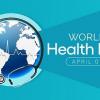News
Displaying Results 1 - 19 of 19
Preventing accidental water pollution remains a key challenge for many countries within and beyond the UNECE region. Approximately 60% of the world’s freshwater flows occur in transboundary river basins where 40% of the world’s population live. Countries rely increasingly on transboundary water…
Air pollution levels in Georgia are considered unhealthy with annual average of fine particles PM2.5 exceeding the World Health Organization's air quality guideline by at least three times.
To support Georgia in further improving its air quality management system, a new EU-funded project,…
The building industry currently accounts for 39% of global energy-related CO2 emissions, 11% of which result from manufacturing building materials and products such as steel, cement, and glass. And yet, to date, emission reduction efforts have not really focused on decarbonizing the construction…
For some time now, Uzbekistan has been engaged in various activities under the UNECE Convention on Access to Information, Public Participation in Decision-making and Access to Justice in Environmental Matters (Aarhus Convention).
An international round table entitled “Aarhus Convention: Effective…
While many of us have taken pain relievers, we do not always remember that one of the most extensively used medicines in the world – with an estimated annual consumption of 40,000 tons – salicylic acid, commonly known as aspirin, is based on a tree-derived ingredient.
The theme of this year’s…
While Uzbekistan has improved its environmental performance in line with the Sustainable Development Goals (SDGs) related to water and sanitation (SDG 6) and forests and tree cover loss (SDG targets 15.1, 15.2, 15.3), significant challenges remain related to air quality (SDG 11.6), water resources…
As guests of the planet, we human beings can thrive only if our host environment is thriving. We are strongly connected to it, more than we probably understand and more than we probably dare to admit.
Conversely, the ways humans treat the environment has clear negative effects on our health and…
UNECE is deepening its support to help countries of the region capitalize on innovation to recover from the pandemic and realize the ambitious vision of the 2030 Agenda.
The UNECE Innovation for Sustainable Development Review (I4SDR) of Uzbekistan, which is currently underway, will set out…
Air Convention Task Force discusses impacts of COVID-19 lockdowns on air quality in the UNECE region
One year after the first COVID-19 lockdown in many parts of the UNECE region, scientists and experts are studying the effects of lockdown measures on air quality. A study from Germany showed that while levels of nitrogen oxides (NO2) measured at urban stations decreased during the lockdown in…
Water scarcity and pollution is increasing worldwide, as a result of the rising economic demands for water, population growth and rapid urbanisation, exacerbated by ecosystem losses and climate change. Water-related risks can negatively affect sustainable development, human health and well-being, …
Countries cannot know whether they are successful in implementing the 2030 Agenda for Sustainable Development, and achieving the Sustainable Development Goals, unless success is defined and tracked. SDG indicators provide such a definition and something to track. As a result, indicators –…
In 2014, Austria and France launched The Partnership on Cycling Promotion under the Transport, Health and Environment Pan-European Programme (THE PEP), a programme jointly serviced by UNECE (bringing together its work on environment and sustainable transport) and the WHO Regional Office for Europe…
The diesel scandal in Europe has made us aware of the potential trade-offs between different fields of policy. While trying to reduce greenhouse gas emissions, policies to subsidize diesel cars were made without taking into account that diesel emissions have serious negative impacts on air quality…
Marking two hundred years since the invention of the Draisine, an ancestor of the bicycle, in Mannheim, Germany, the city will host two events this month on the theme of active mobility: the International Cycling Conference and a Transport, Health and Environment Pan-European Programme (THE PEP)…
While others debate the merits of green economy, the Transport, Health and Environment Pan-European Programme (THE PEP) demonstrated once again its hands-on approach by hosting a green economy discussion that focused not on whether to implement green economy, but how to do it.
The…
Policies that support cycling not only contribute to the fight against air pollution and greenhouse gases and boost health, but can also go a long way in creating jobs as part of the transition to a Green Economy, participants heard at a side event in Batumi.
An estimated 435,000…
Thanks to UNECE and its Environmental Monitoring and Assessment Programme, the global “data revolution” needed to ensure sustainable development and monitor progress in achieving the future sustainable development goals (SDGs) is well under way in the countries of Eastern and South-Eastern Europe…
The Committee on Environmental Policy (CEP) worked hard this year to advance environmental governance in the region. Its twentieth session, held in Geneva from 28 to 31 October 2014, brought together delegates from 40 Governments, the United Nations system, the European Union, intergovernmental…
Environmental indicators are a key tool for environmental assessment, reporting and policymaking. Appropriately chosen indicators based on sufficient time-series data can show key trends and help describe causes and effects of environmental conditions.
To promote the establishment of a…











